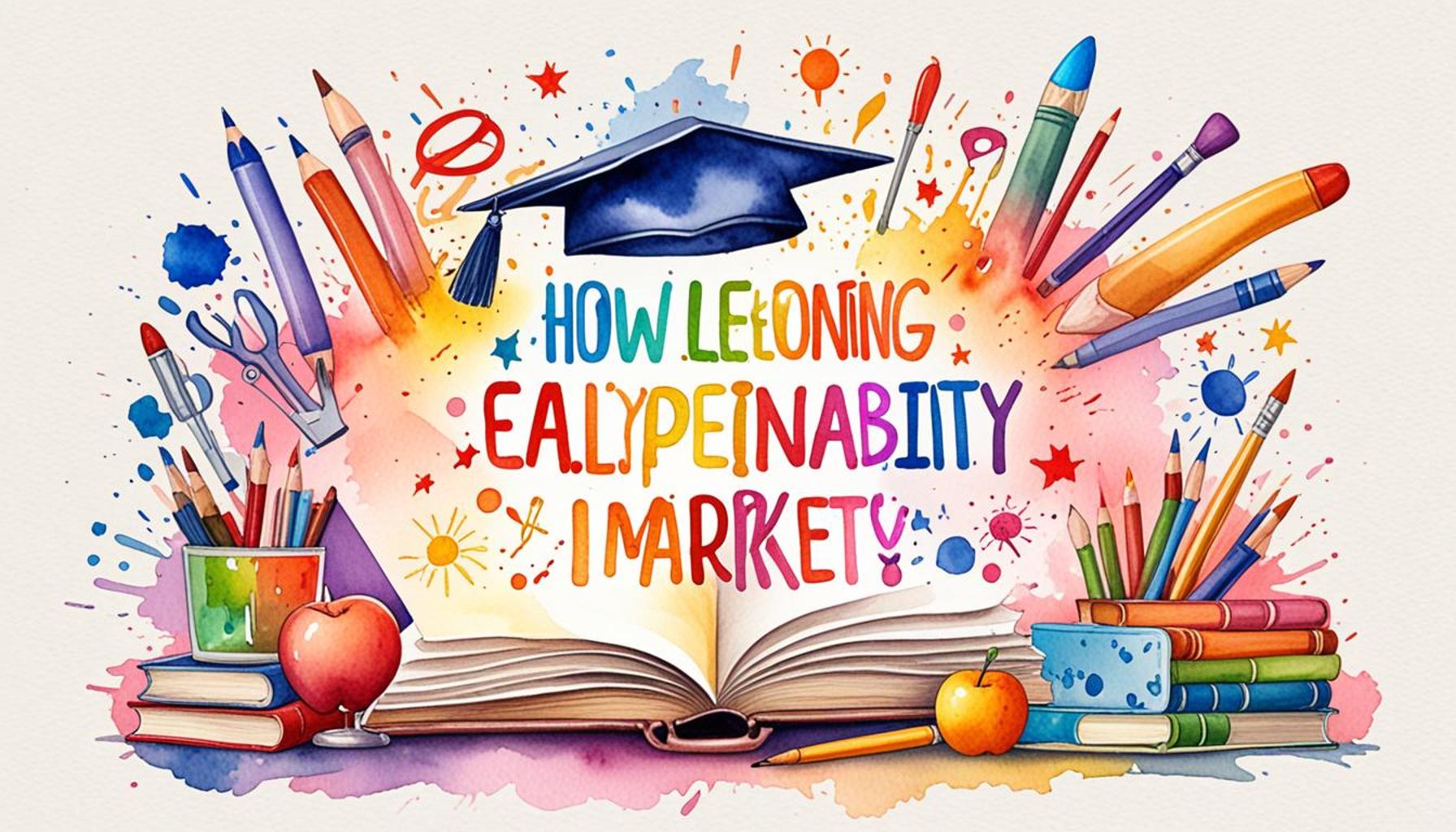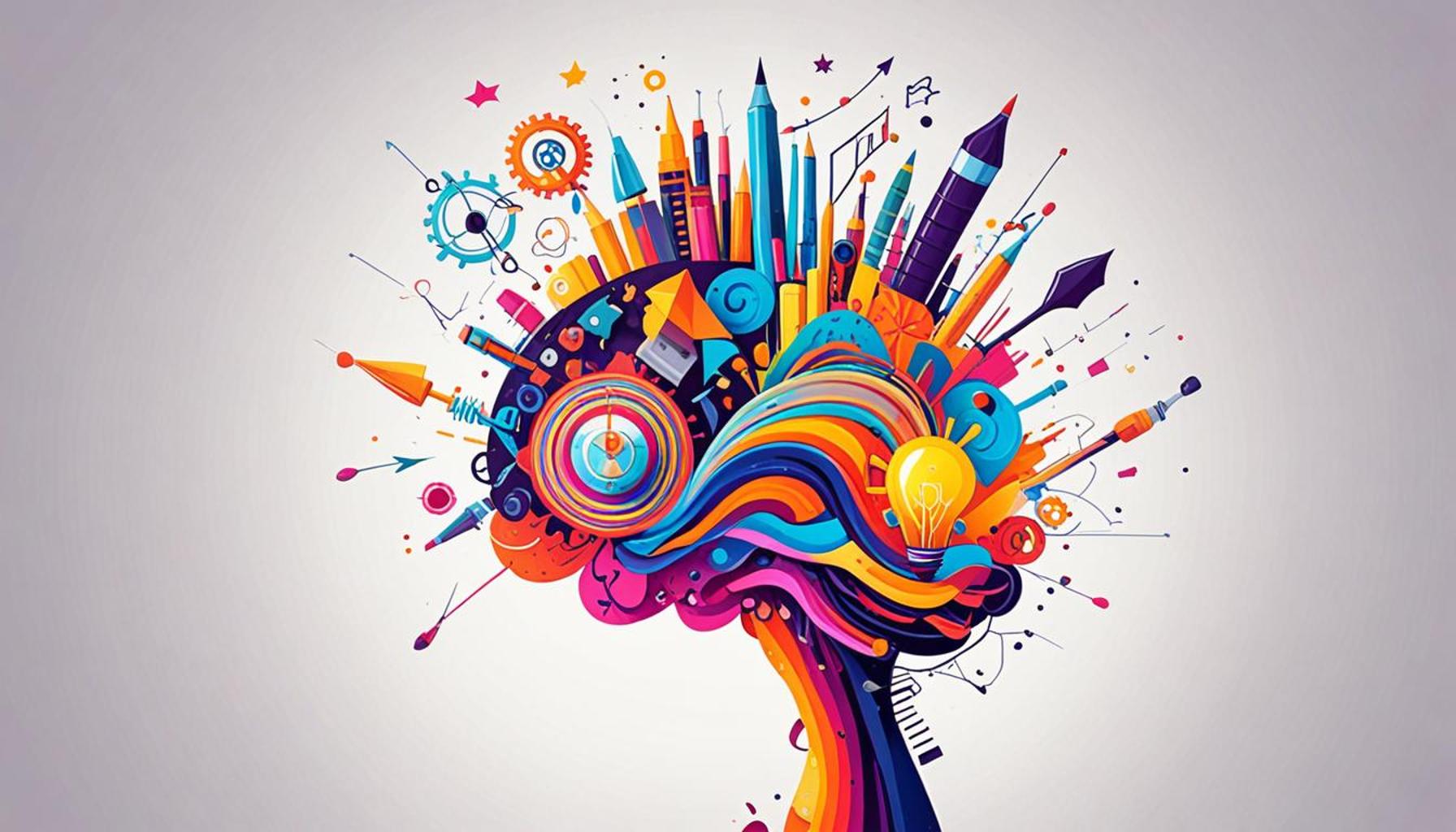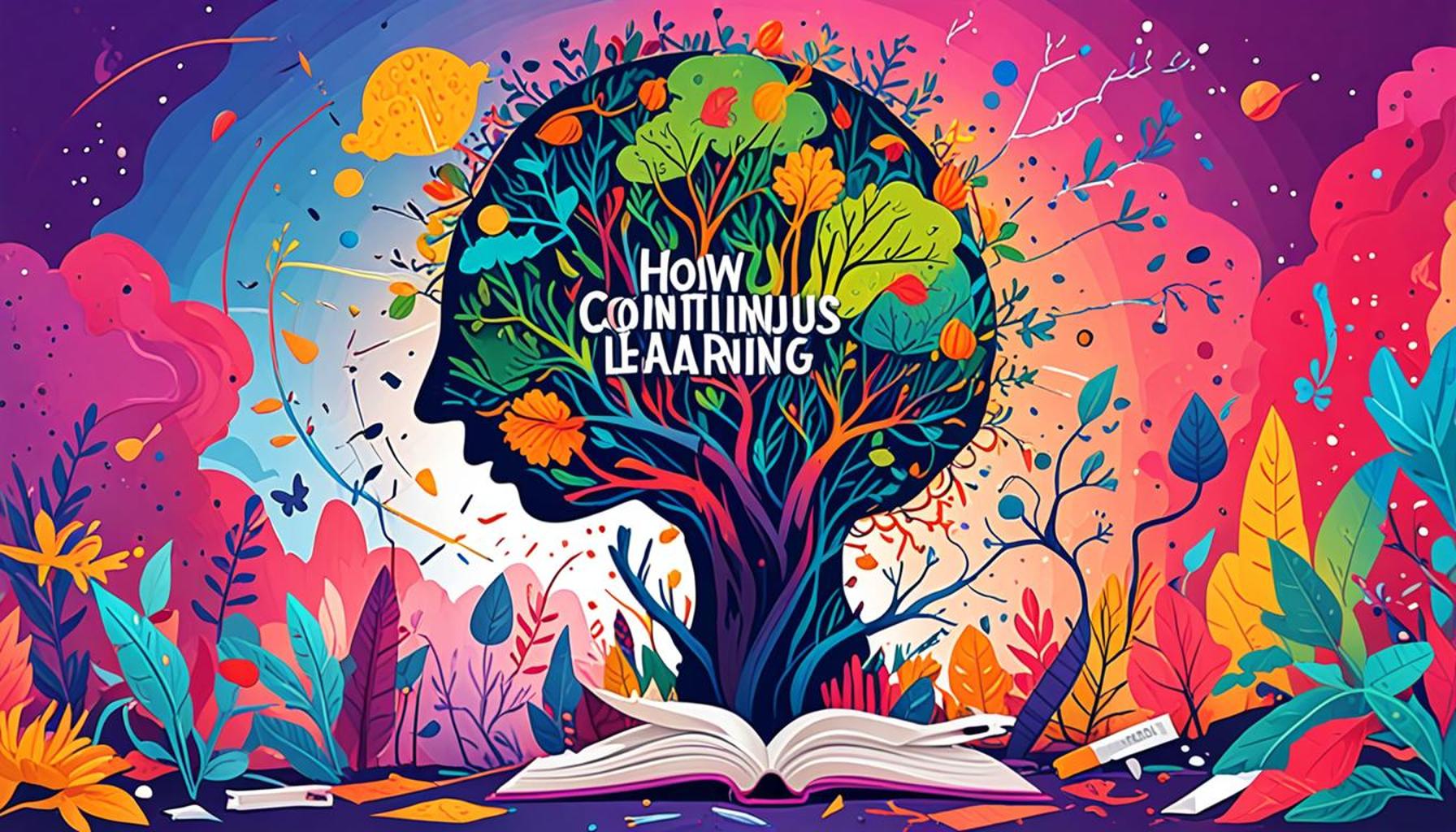How Lifelong Learning Can Enhance Employability in a Competitive Job Market

The Importance of Lifelong Learning
In today’s competitive job market, simply holding a degree does not guarantee job security or career advancement. As the landscape of employment rapidly shifts, employers are increasingly prioritizing candidates who are committed to lifelong learning and ongoing skill enhancement. This continuous pursuit of knowledge not only hones professional expertise but also enhances an individual’s ability to adapt to the ever-evolving demands of various industries.
Lifelong learning encompasses a broad spectrum of educational avenues that cater to different learning styles and career goals. For instance,
- Formal education: Pursuing advanced degrees or obtaining professional certifications shows an investor’s commitment to their field of work. Examples include an MBA for business professionals or a PMP certification for project managers, both of which signal to employers a willingness to engage in further education.
- Online courses: Platforms like Coursera and Udemy offer a wealth of resources. For example, a Nigerian marketing professional can enhance their credentials by enrolling in a digital marketing course from a reputable institution, gaining valuable skills in SEO, social media strategy, and data analytics.
- Workshops and seminars: Short-term training sessions focused on specific skills or tools can provide immediate value. In major cities like Lagos or Abuja, numerous organizations host workshops that teach relevant technologies, such as coding boot camps or graphic design classes.
In Nigeria, where the job market is undergoing continuous transformation due to technological advances and globalization, adopting a mentality centered around continuous learning is invaluable. This proactive approach can lead to numerous benefits, including:
- Enhanced skill sets: Professionals may choose to become proficient in high-demand areas such as data analysis or mobile app development, thereby increasing their appeal to prospective employers.
- Broader networking opportunities: Engaging with diverse communities of learners—whether through local meetups or online forums—fosters connections that can lead to new job opportunities, collaborations, and mentorships.
- Increased confidence: With a well-rounded skill set, individuals often feel better prepared to tackle the challenges of interviews and the responsibilities of new roles, making them more competitive candidates.
As industries witness rapid innovations, from the growing tech sector to advances in renewable energy, the ability to adapt, learn, and grow is crucial. This article will delve deeper into how incorporating lifelong learning strategies can significantly expand employability in Nigeria’s dynamic work environment. By embracing this continuous journey of education, professionals can not only secure better jobs but also carve out rewarding careers that thrive amid change.
LEARN MORE: This related article may interest you
Adapting Skills for a Changing World
One of the cornerstones of lifelong learning is the adaptability it fosters in professionals. In a world where technology and market demands shift at lightning speed, the ability to learn new concepts and systems can determine career trajectory. For job seekers in Nigeria, this adaptability translates directly into employability. In fact, research has shown that individuals who continuously update their skills are significantly more likely to land interviews and job offers than those who rely solely on their initial education.
The pursuit of lifelong learning empowers professionals to pivot in their careers and seize opportunities that may previously have felt out of reach. For example, a teacher in Abuja may discover a newfound interest in educational technology. By enrolling in relevant online courses and exploring workshops focused on ed-tech tools, this individual not only expands their knowledge base but also becomes a valuable asset in a classroom environment that increasingly relies on digital resources.
Identifying Key Skills for the Current Job Market
To effectively enhance employability through lifelong learning, professionals must identify trending skills within their industries. Here are some areas that are rapidly gaining traction in Nigeria:
- Data Analysis: With an explosion of data generated by businesses, organizations are on the hunt for individuals skilled in data interpretation and statistical analysis. Tools like Excel, Tableau, and Python are essential for those wishing to thrive in this field.
- Digital Marketing: As companies shift to online platforms, expertise in social media management, content creation, and SEO has become paramount. Skills in these areas can set candidates apart in job applications.
- Software Development: Coding skills continue to be in high demand, as tech startups flourish across Nigeria. Knowledge in programming languages such as JavaScript, Python, or Ruby can position candidates strongly in a competitive job market.
- Project Management: The ability to efficiently manage resources and timelines is crucial. Certifications like Project Management Professional (PMP) can affirm a candidate’s skills in leading projects successfully.
Networking is another critical component of lifelong learning. Engaging with industry peers or participating in community workshops can yield opportunities that are not advertised, emphasizing the principle that learning occurs as much in social settings as in formal education. By attending conferences or local seminars, professionals not only gain insights into emerging trends but also connect with potential employers or collaborators.
Furthermore, cultivating a mindset of lifelong learning enhances personal confidence. With every new skill learned, individuals often feel more equipped to face upcoming challenges, whether in job interviews or new work responsibilities. Those who demonstrate a proactive approach to learning are often viewed favorably by employers, as they are seen as candidates who take the initiative and are dedicated to personal growth.
As we explore deeper the intersection of lifelong learning and employability, it’s clear that embracing this philosophy is not merely beneficial; it is essential for thriving in Nigeria’s evolving job landscape. In the following sections, we will delve into specific strategies and resources that can facilitate this transformative journey.
Understanding the Impact of Lifelong Learning
Lifelong learning plays a pivotal role in enhancing employability in today’s competitive job market. As industries evolve and job roles transform, the need for individuals to continually upgrade their skills has become more pressing than ever.
| Advantage | Details |
|---|---|
| Enhanced Skill Set | Lifelong learning ensures that the workforce is always equipped with in-demand skills, making individuals more appealing to potential employers. |
| Increased Adaptability | Individuals who engage in lifelong learning demonstrate a willingness to adapt to new challenges, which is a highly sought-after trait in fast-paced industries. |
Moreover, lifelong learning fosters innovation and creativity among employees. By encouraging curiosity and experimentation, organizations can harness a workforce that not only meets existing demands but also pioneers new solutions. As employees expand their knowledge, they become more confident in their abilities to contribute to their organization’s success.
Additionally, networking opportunities often accompany further education, providing valuable connections that can lead to job opportunities and collaborations. The integration of technology and online courses has further democratized access to learning, allowing individuals from diverse backgrounds to engage in professional development at their own pace.
A Growing Demand for Continuous Development
As employers increasingly prioritize ongoing professional development, the ability to demonstrate a commitment to lifelong learning can be a distinguishing factor in the hiring process. Many companies now look for candidates who not only possess foundational skills but also show a proactive approach to personal growth and adaptation.
In summary, the relationship between lifelong learning and employability becomes clearer as the demand for skilled, adaptable professionals continues to rise. Those who prioritize their education and development stand to gain a significant advantage in navigating the complexities of the modern job market.
YOU MAY ALSO LIKE: Read read another article
Leveraging Online Platforms for Continuous Growth
In the digital age, the avenues for lifelong learning have expanded immensely, particularly through online platforms. For many job seekers in Nigeria, these resources offer flexible and affordable means to acquire new skills that are vital in a competitive job market. Platforms like Coursera, Udemy, and LinkedIn Learning have made it straightforward to access courses covering everything from advanced programming languages to public speaking skills. This democratization of education means that individuals no longer need to be confined to traditional learning environments; knowledge is literally at their fingertips.
For instance, consider a young graduate in Lagos who aspires to work in the tech industry. By utilizing online resources, this individual could take a series of courses in web development, gradually building a portfolio of work that showcases real-world applications of their skills. This approach not only enhances their resume but establishes their commitment to continuous improvement, making them an attractive candidate for tech companies looking for proactive, self-motivated employees.
Certifications as a Value Addition
In addition to acquiring new skills, obtaining relevant certifications can significantly bolster a candidate’s employability. Certifications act as observable proofs of one’s commitment to lifelong learning and often carry weight in hiring decisions. For example, certifications from recognized institutions such as the Google Digital Garage or Microsoft’s Certified Training Programs provide job seekers with credentials that are recognized globally. As Nigerian employers increasingly seek standardized qualifications, having these certifications can differentiate a candidate in a sea of applicants.
Moreover, these additional qualifications can be pivotal for those looking to transition into new fields. Imagine a finance professional from Ibadan who decides to shift towards a career in data science. Through targeted online certification programs, they can learn data analysis and visualization skills, making a seamless shift into an industry that currently boasts high demand for talent.
Emphasizing Soft Skills
While technical skills are crucial, employers are equally on the lookout for interpersonal attributes—often referred to as soft skills. These include communication, teamwork, and problem-solving abilities. Lifelong learning initiatives that focus on these competencies can be immensely beneficial. Participating in group projects, attending public speaking workshops, or even engaging in community service projects can enhance these skills. Companies are increasingly placing value on candidates who show emotional intelligence and the ability to collaborate effectively with diverse teams.
Additionally, platforms like Toastmasters International allow individuals to practice and enhance their public speaking and leadership skills in a supportive environment. This kind of experiential learning is invaluable, as it prepares candidates to articulate their ideas clearly and confidently in job interviews and professional settings.
As the job market becomes more competitive, the emphasis on both hard and soft skills will drive the need for effective lifelong learning. By proactively seeking educational and experiential opportunities, job seekers in Nigeria can better position themselves for success in an ever-evolving professional landscape. With a focus on adaptability, continuous skill acquisition, and soft skill development, individuals can not only enhance their employability but also cultivate a resilient and rewarding career path.
ADDITIONAL INSIGHTS: Expand your understanding here
Conclusion
In conclusion, the significance of lifelong learning in enhancing employability cannot be overstated, especially in the ever-evolving labor market of Nigeria. The rise of online education platforms has transformed how job seekers access knowledge, allowing for greater flexibility and affordability. By acquiring both hard and soft skills through a continuous learning mindset, candidates can significantly improve their prospects in a competitive job environment.
Moreover, obtaining relevant certifications is more than just a trend—it acts as a badge of honor that distinguishes job seekers from others, reflecting their dedication to personal and professional growth. The value of these credentials is acknowledged not only nationally but also internationally, broadening the horizons for Nigerian professionals looking to engage in global markets.
Furthermore, the emphasis on soft skills, such as emotional intelligence and teamwork, highlights a crucial aspect often overlooked in traditional education. By actively pursuing opportunities to enhance these skills, individuals can prepare themselves to meet the diverse demands of modern employers.
As the workforce continues to adapt to technological advancements and shifting industry priorities, adopting a lifelong learning approach becomes essential. Those who take the initiative to expand their skill set and engage with learning opportunities will not only enhance their employability but also embrace a holistic approach to career development, ultimately fostering a resilient workforce ready to tackle the challenges of the future. It is this spirit of adaptability and growth that will shape the future of employability in Nigeria and beyond.


